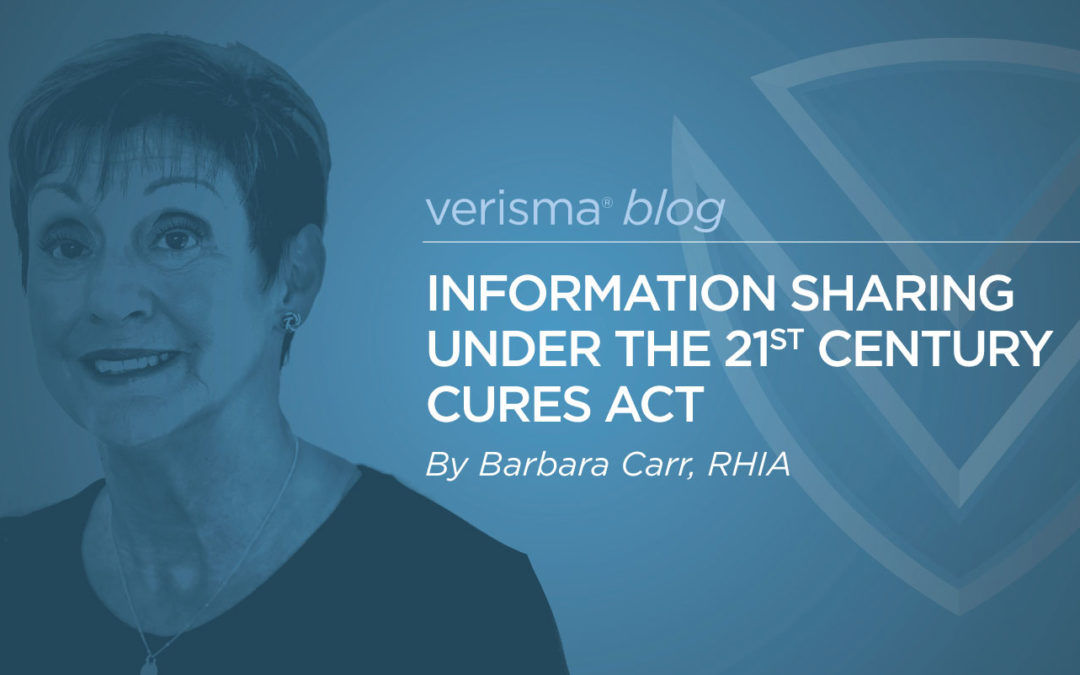
Apr 19, 2022 | Blog, Compliance & Regulations, Information Sharing
By Barbara Carr, RHIA
On March 16, 2022 Verisma hosted a webinar on Information Sharing and the 21st Century Cures Act presented by Elisabeth Myers, MBA, Deputy Director, Office of Policy, HHS Office of the National Coordinator (ONC). The ONC oversees regulations concerning information sharing and interoperability of electronic health information (EHI). Information sharing is at the heart of the 21st Century Cures Act’s information blocking rules.
The Information Blocking regulation went into effect on April 5, 2021. While we should all be fully compliant with the regulations by now, the fact is that in 2022, the regulation will expand the definition of EHI beyond the current United States Core Data for Interoperability Version 1 (July 2020 Errata) (USCDI v1) data set. As defined by the Information Blocking rule, the EHI definition is as follows:
- “Electronic Health Information (EHI) means electronic protected health information (ePHI) to the extent that the ePHI would be included in a designated record set as these terms are defined for HIPAA.
The expansion is “only” PHI that is in an electronic format. It does not include paper documentation even though that documentation may be scanned into the electronic record (PDFs). EHI is the discreet data that is used to make medical decisions. Noted in the webinar is that EHI is “electronic health information (ePHI) to the extent that it would be included in a designated record set”. Further explained during the webinar was that EHI “is individually identifiable health information, that is maintained in electronic media or transmitted by electronic media”. If the ePHI is included in any of the following records and not in the exclusions such as psychotherapy notes, then it would be considered EHI:
- Medical records and billing records of a provider about an individual
- Enrollment, payment, claim adjudication, and case or medical management record systems maintained by or for a health plan.
- Records used in whole or in part to make decisions about individuals
What is not EHI was explained as well. For example, such things like psychotherapy notes, information complied in anticipation of, or for use in, a civil, criminal or administrative action or proceeding, employment records health information, and de-identified protected health information.
Organizations should be looking at what they now include in their designated record set policy and revise if necessary, to ensure the that their policy includes the full scope of EHI in preparation for the October 6, 2022 expansion of the EHI definition beyond the current USCDI v.1 definition.
More details and explanation of the Information Blocking Regulation was shared with the attendees. Points that have caused some questions from health care providers and others in the health IT field were clarified. Information Blocking applies to “actors”. Actors are:
- Health Care Providers
- Health It Developers of Certified Health IT
- Health Information Networks (HINs)
- Health Information Exchanges (HIEs)
Exceptions to the Information Blocking Rule, which have caused a lot of questions from “actors”, in particular the “Infeasibility Exception” where it is not considered information blocking if it is infeasible for an actor to respond to a request. One example would be if it would be impossible for an actor to segment out psychotherapy notes from the EHI. Another would be the cost to comply would be prohibitive. Other examples were given as well as resource information available on ONC’s Cures Act Final Rule website, where attendees can find more information.
What should you do if you are experiencing information blocking? As directed by the Cures Act, the National Coordinator has implemented a standardized process for the public to submit reports on claims of information blocking. The report can be submitted through the Information Blocking Portal at: https://healthit.gov/report-info-blocking.
The second part of the presentation was focused on the Trusted Exchange Framework and Common Agreement (TEFCA). TEFCA as stated in the 21st Century Cures Act – Section 4003(b). While we do exchange EHI now, not all EHI exchanges enable exchange from another exchange. TEFCA was established to provide a technical floor for nationwide interoperability and to simplify connectivity for organizations to securely exchange information to improve care while enabling individuals to gather their health care information.
While TEFCA alone could be a webinar in and of itself, we did learn how it will be organized and were given detailed information to help us understand how TEFCA will operate. The Recognized Coordinating Entity (RCE) is the entity selected by ONC that will enter into agreements with Health Information Networks (HINs) that qualify and elect to become Qualified HINs. The RCE will act as a governing body that will operationalize TEFCA requirements on. The QHINs in turn will connect directly to each other to facilitate nationwide interoperability. Each of the QHINs will connect participants and sub participants to each other. Permitted exchange purposes are: Treatment, Payment, Health Care Operations, Public Health, Government Benefits Determination, and Individual Access Services.
The webinar provided a wealth of information and examined both interoperability and TEFCA clearly for participants to understand what to expect going forward with information sharing in 2022.
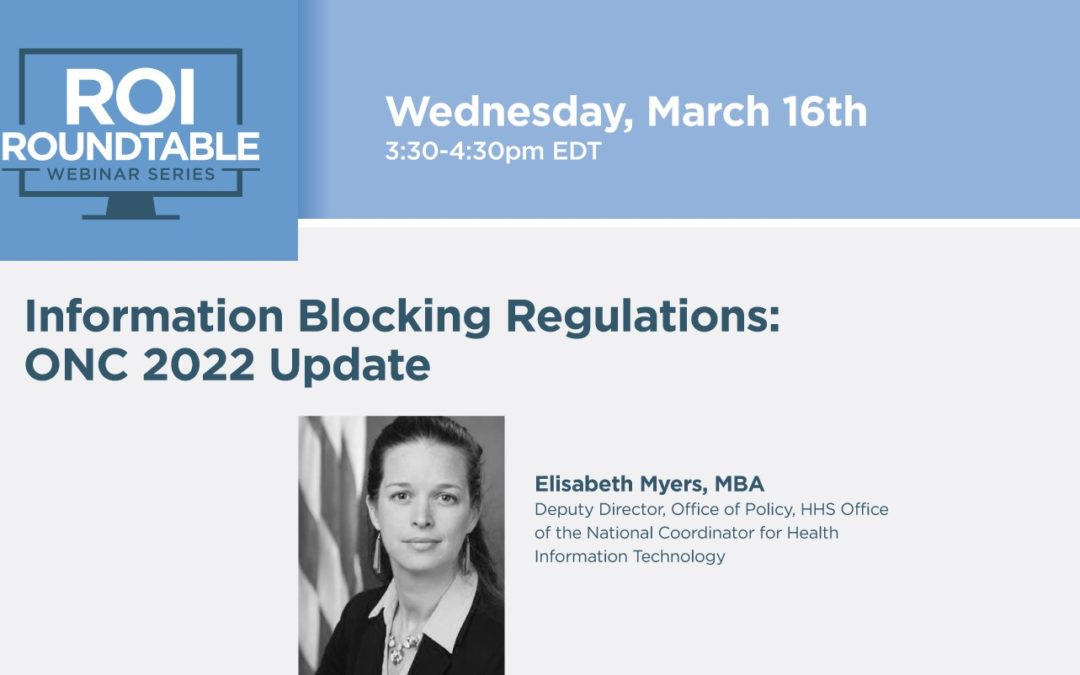
Feb 23, 2022 | Compliance & Regulations, Information Sharing, News, Release of Information
Date: March 16, 3:30 pm – 4:30 pm EDT
Presenter:
Elisabeth Myers, MBA
Deputy Director, Office of Policy, HHS Office of the National Coordinator for Health Information Technology
The Information Blocking regulation went into effect on April 5, 2021. While we should all be fully compliant with the regulations, the fact is that in 2022, the scope of information sharing will expand from the current United States Core Data for Interoperability Version 1 (July 2020 Errata) (USCDI v1) data set to all Electronic Health Information (EHI) in the designated record set. In addition, the Trusted Exchange Framework and Common Agreement (TEFCA) Version 1 was released on January 18, 2022. The overall goal of TEFCA is to establish a model for securely sharing clinical information.
What does TEFCA mean and how will this impact the exchange and sharing of EHI going forward? How will this help facilitate the exchange of EHI among healthcare information networks? In addition, what does “all EHI” mean in terms of the regulation and what does this mean for healthcare organizations and payers charged with information sharing?
Hear from the Office of the National Coordinator for Health Information Technology regarding what to expect in 2022 and the status of ONC’s Information Blocking Regulations as they pertain to access, exchange, and use of electronic health information.
Learning Objectives:
- Understand Information Sharing in 2022 and Subsequent Years
- Learn about TEFCA and its implications for healthcare networks sharing of EHI.
- Learn how covered entities should adopt and adapt for compliance in the coming year and identify specific impacts for release of information.
Pre-Approved for 1 AHIMA CEU Credit.
REGISTER TODAY
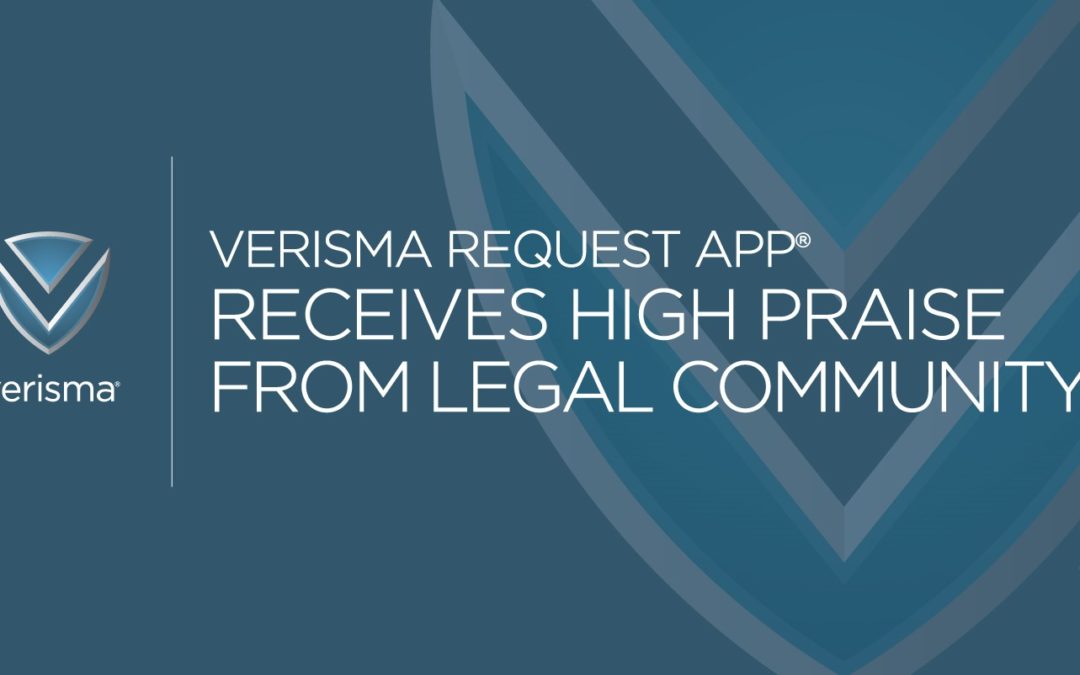
Feb 3, 2022 | Compliance & Regulations, News, Verisma Company Updates
Verisma Request App® Receives High Praise from Legal Community
100% of attorneys would recommend VRA to colleagues
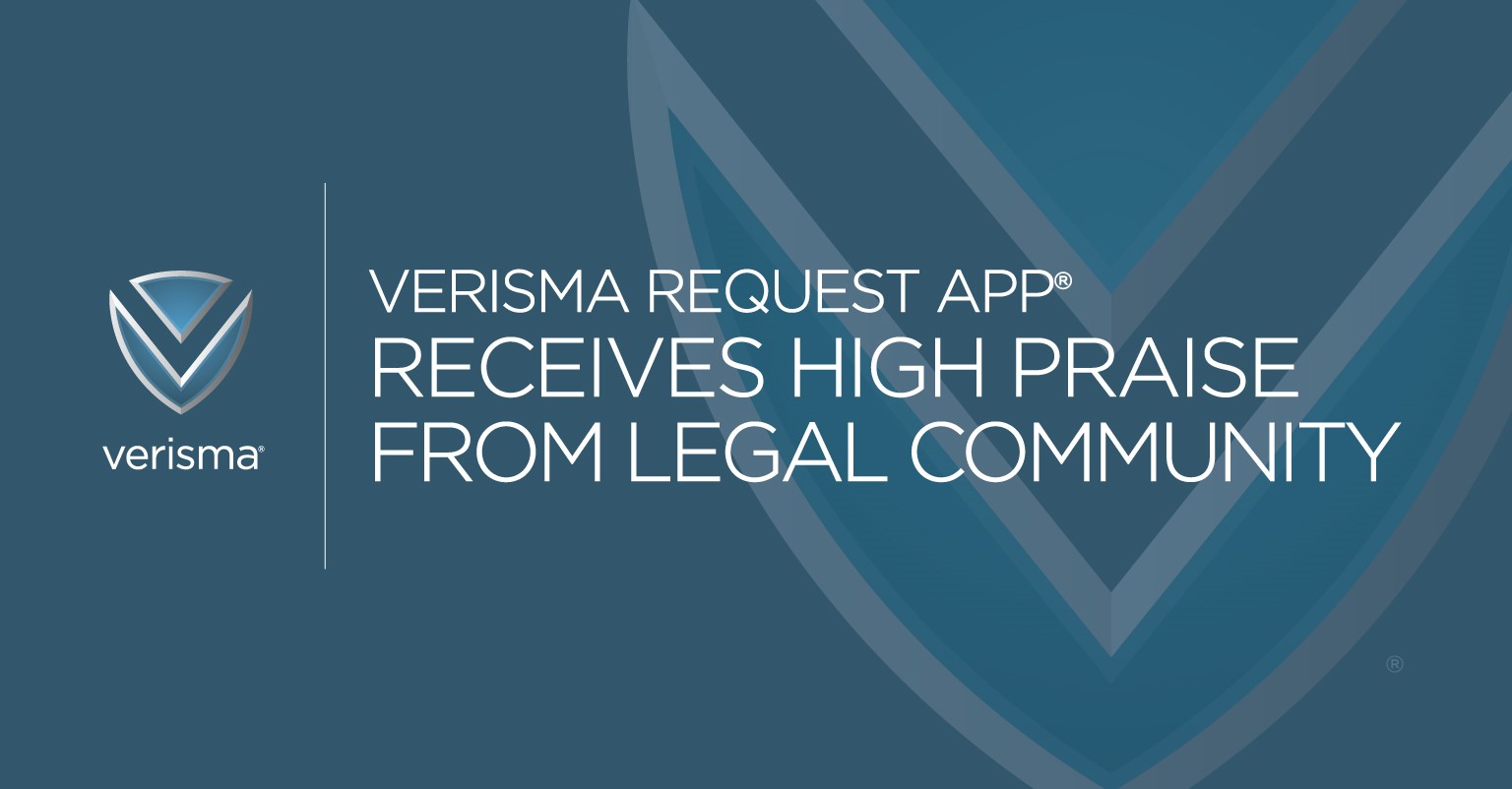
WASHINGTON, D.C., February 3, 2022 – Verisma, an industry leader in disclosure management technology and services to the US provider market, received exciting results of a recent survey to attorneys. Their ground-breaking Verisma Request App® (VRA) technology received an overwhelming amount of support from those surveyed within the legal community. 100% of attorneys would recommend VRA to their colleagues, and respondents rated it 4.7 out of 5 for ease-of-use over traditional manual record request methods. One attorney from the Northeast said: “I wish other facilities used something similar to Verisma. I like knowing my request was received and that I have a contact person to reach if I have any questions.”
VRA provides attorneys with a remote, self-managed approach to electronic record ordering, tracking, payment, and delivery. This change enhances efficiency, eliminates the compliance risk and stress of a paper-driven request process, and results in a more satisfied requestor experience.
Benefits of VRA include:
- Up to a 50% reduction in total request turn-around-times with elimination of an antiquated manual record request workflow process
- Up to a 30% reduction in record request processing costs associated with a traditional paper-driven process
- Improved requestor satisfaction with ability to self-manage the entire experience online for all submitted record requests
- Decreased risk to the healthcare organization with the elimination of common paper-driven request errors
About Verisma
Verisma is a proven partner with decades of experience supporting large, complex healthcare environments around the country. We process millions of medical requests a year and are committed to serving our partners with technology and support solutions that allow them to manage their business and to deliver an exceptional patient experience. From our technology to our people and our partnerships, we believe our purpose is to protect truth and accuracy. Learn more about our disclosure management system at verisma.com.
Media Contact:
Davy Simanivanh
Phone (571) 205-6722
dsimanivanh@verisma.com
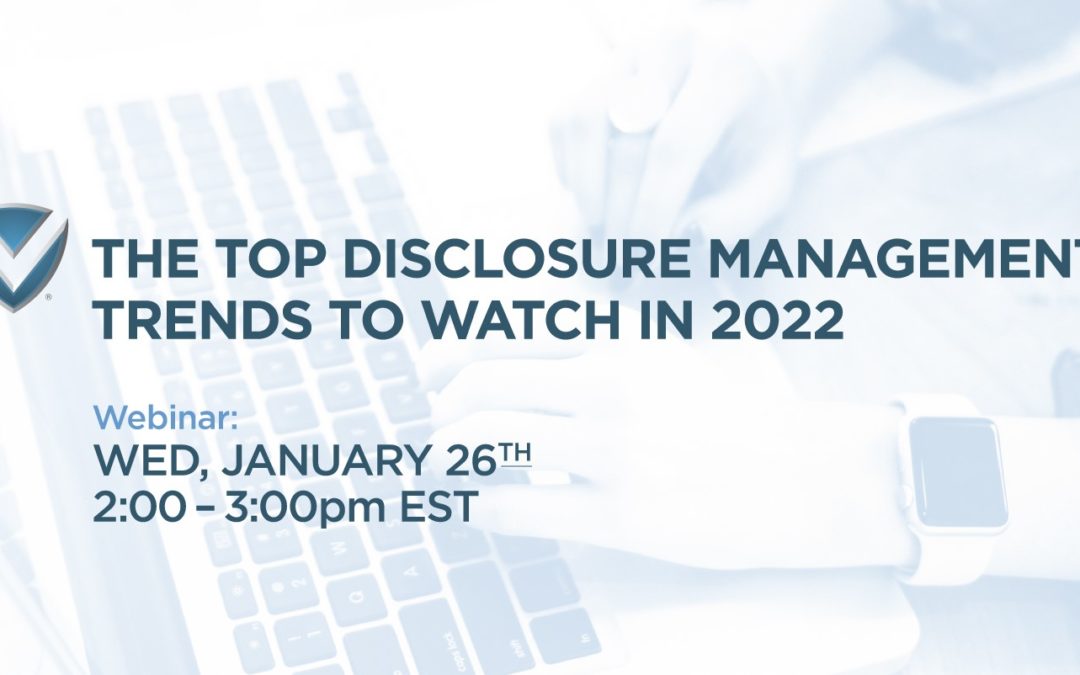
Jan 5, 2022 | Compliance & Regulations, Health Information Solutions, News
Date: January 26, 2:00 pm – 3:00 pm EST
Presenters:
Julia Applegate
SVP of Client Operations
Debbie Lobb, RHIA, CHP, CHC, CTR
Director of Compliance & Privacy
Barbara Carr, RHIA
Strategic Advisor
Discover the top trends in disclosure management to watch in 2022. Further roll-out of the 21st Century Cures Act, the proposed modifications to the HIPAA Privacy Rule along with a hybrid workforce and the growing increase in digital requests and delivery will all have a direct impact on HIM operations and require organization-wide changes in 2022. Verisma subject matter experts will share first-hand knowledge and steps they are taking to prepare for these challenges and helping health system clients navigate through these changes. Learn what areas will see the biggest impact and recommended next steps to take to your organization.
Learning Objectives:
- Learn what HIPAA changes will directly impact HIM operations and what you can do to prepare.
- Learn how to ensure compliance with the further rollout of the 21st Century Cures Act to ensure the entire medical records is made available to patients upon request.
- Learn how technology advances in disclosure management can help meet the demands the new changes will place on HIM departments.
Pre-Approved for 1 AHIMA CEU Credit.
REGISTER TODAY
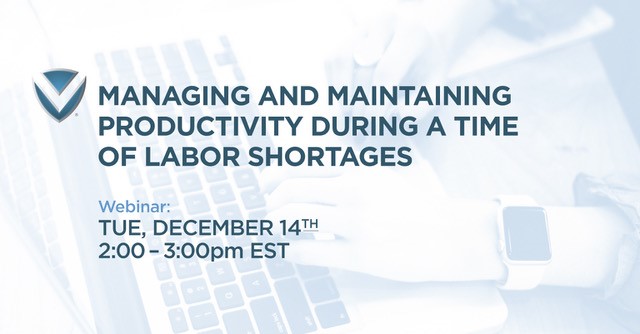
Nov 24, 2021 | Compliance & Regulations, News, Operational Outcomes, Release of Information
Date: December 14, 2:00 pm – 3:00 pm EST
Presenters:
Stephanie Lavoie
VP of Client Operations
Barbara Carr, RHIA
Strategic Advisor
The pandemic has led to labor shortages and challenges in all industries, in particular healthcare due to vaccine mandates and employee refusals to be vaccinated. How are hospitals and the industry in general reacting to these shortages? What creative practices are being put in place to recruit, train, and retain talented staff? What best practices are being implemented to ensure the consistency and effectiveness of ROI processes?
In this webinar you will hear from Verisma’s leading experts in ROI and disclosure management. They will share their expertise and firsthand knowledge regarding the staffing shortages health systems are experiencing and provide real world examples of unique methods being taken in the industry to address staffing shortages. The ability to take the necessary steps to combat these challenges has allowed organizations to maintain productivity, compliance, turnaround times and overall customer satisfaction.
Learning Outcomes:
- Learn steps that can be taken immediately to address staffing shortages as well as retaining current employees
- Discover best practices in ensuring effective ROI processes during this time of uncertainty
- Learn creative ways to recruit and train new staff
Pre-Approved for 1 AHIMA CEU Credit.
REGISTER TODAY
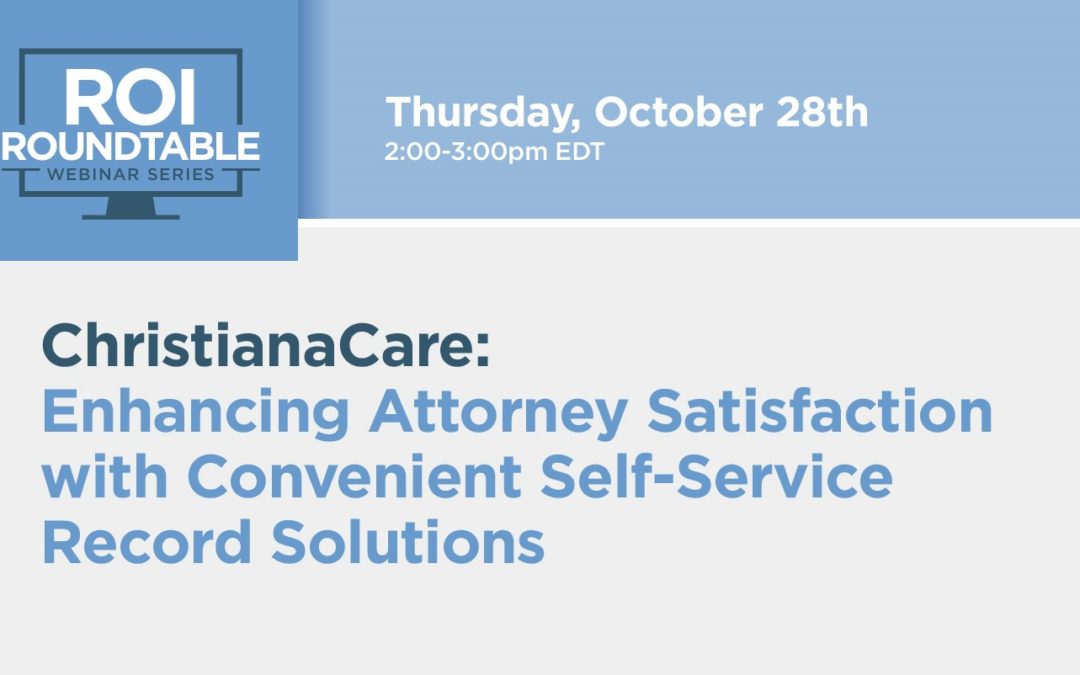
Oct 7, 2021 | Compliance & Regulations, News, Release of Information
Date: October 28, 2:00 pm – 3:00 pm EDT
Presenters:
Stefanie Brumberg, RHIA
Corporate Director of HIM, ChristianaCare
Anupriyo Chakravarti
CIO & SVP R&D
Barbara Carr, RHIA
Strategic Advisor
In this webinar, you will hear from ChristianaCare, a 1,000+ bed teaching organization located in Newark, DE with a centralized release of information service supporting both acute care and ambulatory operations. ChristianaCare recently recently deployed the Verisma Request App® (VRA) to offer attorneys the ability to easily submit, track and receive records wherever they are. Learn how the latest updates to VRA has helped ChristianaCare to efficiently streamline the process and increase requestor satisfaction.
Learning Objectives:
- Understand the issues and complexities with attorney requests and subpoenas for release of information
- The business case and rationale for automating the attorney request process
- Learn the steps and implementation process for implementing VRA and the minimal support needed from IT resources
- Describe the benefits and impact in using VRA to improve compliance, turnaround times and overall requestor satisfaction
Approved for 1 AHIMA CEU Credit.
REGISTER TODAY







